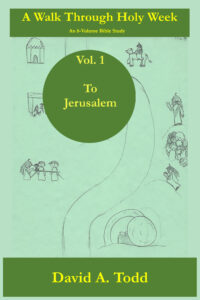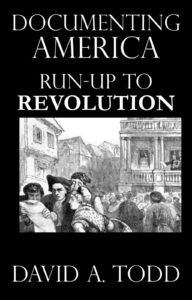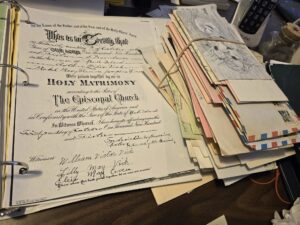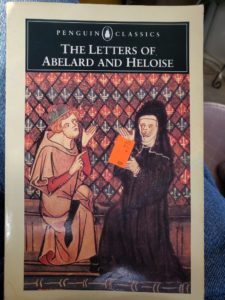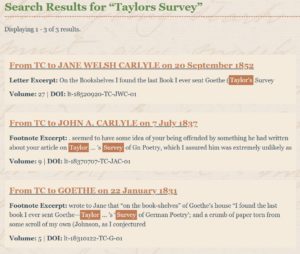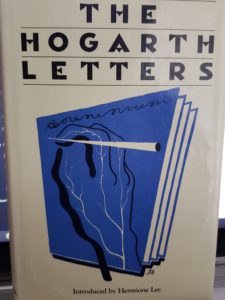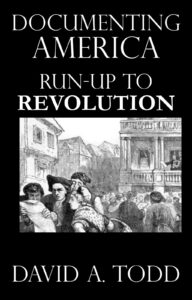
Last week was busy. Two medical tests. Three doctor appointments. Two writer meetings. Plus a private meeting with a writer in one group. All of these appointments save one were in Rogers, a twenty mile drive each way. A couple of appointments I was able to have somewhat close together, but with some “layover” time between them. I had time to spend in Barnes and Noble and the Rogers Library.
I did almost no writing last week. Instead, I worked on the two special projects I have going on. That took up much of my time, but I made major progress on both the letters transcription and the critiques scanning and saving. I can see light at the end of both of those tunnels.
But on Friday I did some editing of A Walk Through Holy Week, Vol. 8. Just the first chapter, through Word’s text-to-speech function. After having left this alone for a while, it felt good to be back at it. I’d like to edit a chapter a day using this word processor feature. That would have me finishing the editing pass during the first few days of May.
Then, what? I’ll either have finished of just be finishing my two special projects at that time. It will be the start of another busy time, something I’ll explain later. My plan has been to start on Volume 2 of A Walk Through Holy Week, hoping to finish it (first draft) in about ten weeks. That would be followed by editing and publishing Vol 2 and moving on to Vol. 3. Completing Vol 3 will let me move ahead with publishing all eight volumes.
But I’ve started to brainstorm what to do with the Documenting America series. This is my highest selling series (can’t say best-selling, because it’s not even close to that level). Perhaps it makes sense to write the next book in that series.
But what will it be? I had intended to write next about the abolition movement in America—something I’ve read some on, but which I’d like to know much more about. I have plenty of documents available to read, but I believe I’ll have to find more than I have to make a full book.
Lately, however, I’ve been reading in Thomas Paine’s writing. I already read Common Sense, which is about the American Revolution. A couple if shorter writings dealt with America under the Articles of Confederation. I’ve now moved into his Rights Of Man. To my surprise, the first twenty pages are all about Paine’s thoughts on the French Revolution and his countering the arguments of Edmund Burke. It’s not, so far, a treatise on the rights of man.
But this got me to thinking. Maybe the next volume I write in this series should be on the government of the colonies before the adopting of the Constitution. This was the time of the chaos of the Articles of Confederation, which defined our government during the Revolution and the six years after it. I have some sources for this period, though I think that, just as with abolition, I would have to find others.
Which would be better? Abolition captures my interest, but the Articles of Confederation, what I’m tempted to call the First American Government, seems to be something that has been written about much written about it. If I can find enough source material, it might be something that will stand out and will be more interesting than writing about the Revolution.
If I stick with my writing plans, I won’t wrote the next DA book until sometime in 2025. But that means I should start now to identify and start reading sources. I know that for Abolition I will have plenty of sources to choose from, but I’m not sure that will be he case for the Articles. So I think some of my work this week, if the time materializes, if to start listing sources for both of these.
Why both? Because whichever of these is next, the other will be after that, Therefore none of my research and reading will be lost. It might just be delayed for writing a book.
